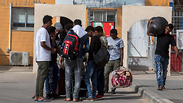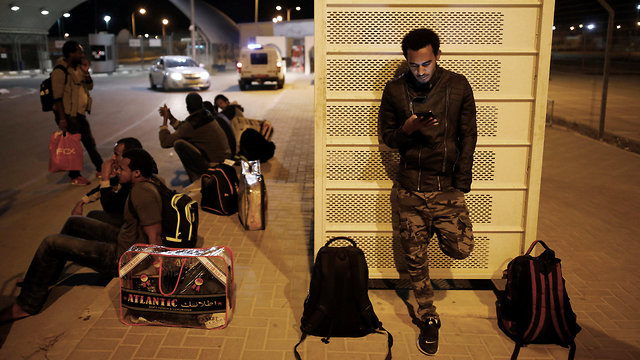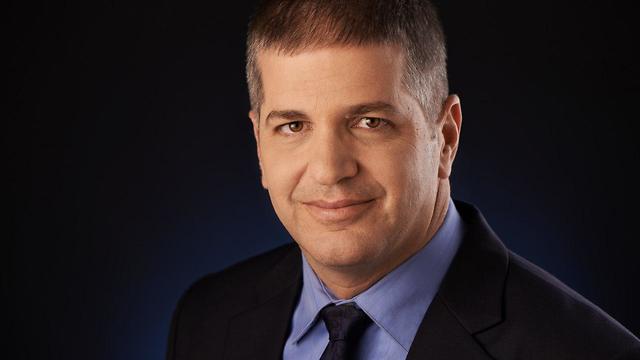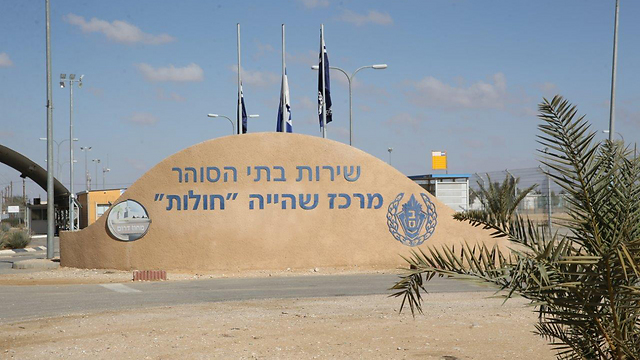
Illegal Afican migrants
Photo: EPA

Top cop attributes spike in south Tel Aviv violence to detention center closures
Chief Superintendent Tzachi Sharabi tells Internal Affairs Committee first half of 2018 has witnessed dozens more instances of violent crime committed by illegal African migrants than the same time frame last year, cites closure of Saharonim Prison and Holot detention facility as reason; rising violence also said caused by feud between supporters and opponents of Eritrean regime.
The police chief superintendent in south Tel Aviv told the Knesset Internal Affairs Committee on Monday that the number of violent incidents has soared among the African migrant community in the area under his command since the closure of Saharonim Prison and Holot detention facility,
where many were being held.
“In the first half of 2018 there has been an increase in dozens of instances of violent crime, robbery and serious attacks among the infiltrators in south Tel Aviv when compared to the corresponding time frame the previous year,” Chief Superintendent Tzachi Sharabi said.
Sharabi suggested that the phenomenon could mainly be attributed to the closure of Holot and Saharonim and the release of illegal African migrants.
Violent riots among African migrant community
In the past, illegal migrants who committed violent offenses could be taken to one of the centers for administrative reasons following the failure to produce a valid residency permit even if they could not be convicted in a court of a crime.
“It is clear to any reasonable person that getting to a criminal procedure is a far more complicated matter and that we are not discussing here Israelis with blue identification cards or regular enforcement abilities when each side testifies normally,” the officer said.
“Today, many times we find ourselves with our hands tied. There is a lot of enforcement in the field and arrests are carried out within minutes, but unfortunately the majority are released after a few days and they realize that there is no ability to enforce the law at an administrative level,” Sharabi complained.
At the same time, the officer pointed to a silver lining in the gloomy news, citing a drop in the number of drug-related offenses among the African community in south Tel Aviv.
The committee also discussed riots that took place two weeks ago that lasted several days between Eritreans who support and oppose the regime back in their home country.
“There are thousands of asylum seekers here who support the regime and they can go back to Eritrea. We have said that many times,” said Emanuel Yamana, himself an asylum seeker from Eritrea.
“Every year they celebrate with the Eritrean embassy and every year we go there and demonstrate and there is violence, but this year we decided not to demonstrate at the request of the police,” he continued.
“We have names and we have proof. They pay 2 percent tax to the regime in Eritrea and that’s how they can be recognized.”
MK Dov Khenin from the Joint List attacked the Israeli government for its diplomatic relations with the dictatorial Eritrean regime, asking representatives of the Israeli Administration Population, Immigration and Border Authority and the police: “What are supporters of the Eritrean regime doing here and who has any interest in them staying?
“According to a lot of evidence, the violence against the Eritrean regime’s opponents takes place with the backing and support of the Eritrean embassy,” he noted.
The chairman of the committee, MK Yoav Kisch (Likud) said that he was less concerned with violent skirmishes between supporters and opponents of the Eritrean regime.
“The violence itself and the corrosion of deterrence is extremely concerning. I ask the Immigration Authority: We have pictures of regime supporters. Why are they here?” he asked.
“We don’t know about this notion of supporting or opposing the regime. We haven’t gotten into the matter. We are not aware of this kind of division,” responded Yossi Edelstein, who heads Enforcement and Foreign Affairs in the Population and Immigration Authority.
Also present at the committee meeting was Sheffi Paz, who has led the "South Tel Aviv Liberation Front" against the influx of illegal African migrants.
“The level of violence on the streets this year has exceeded all other previous years. A narrative of supporters and opponents of the regime is beginning to develop. It’s a bluff,” she said. “There are a few hundred regime opponents and a few hundred supporters. All the rest are work migrants … I don’t want them conducting a civil war in our neighborhood. They can do it in their own country.”
Shlomo Maslawi, chairman of the Tikvah Neighborhood Committee in south Tel Aviv, bemoaned what he described as “the worst situation it has been throughout the years.”
“If we continue in this situation in which policemen need to accompany elderly people to supermarkets or any other place, the situation is truly dire,” he said, before adding a warning that the violence could spread.
“Unfortunately, I see here a perpetuation of a situation that might be good for the country, whereby all that happens in south Tel Aviv stays in south Tel Aviv, because it is easy to control what goes on here. If the infiltrators spread out across the country, so will the crime and the violence,” he said.


















